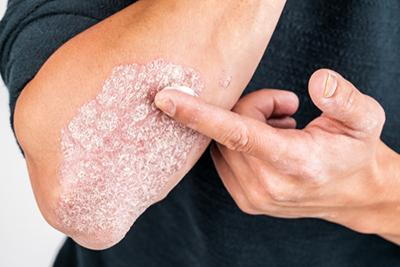Living with a chronic skin condition can be challenging, affecting both physical health and emotional well-being. Among these conditions, psoriasis is one of the most common and complex. It is a lifelong autoimmune disorder that accelerates the growth cycle of skin cells, leading to inflammation, scaling, and discomfort. Effective psoriasis treatment requires a comprehensive, multi-faceted approach tailored to the individual’s needs.
Understanding Psoriasis
Psoriasis manifests as red, scaly patches on the skin, often appearing on the scalp, elbows, knees, and lower back. It can also lead to joint pain in cases of psoriatic arthritis. The severity of the condition varies, with some individuals experiencing mild symptoms and others dealing with widespread, debilitating effects.
The exact cause of psoriasis is not fully understood, but it is believed to result from an overactive immune response. Triggers such as stress, infections, certain medications, and environmental factors can exacerbate the condition.
Effective Psoriasis Treatment Strategies
1. Topical Treatments
Mild to moderate cases of psoriasis often respond well to topical treatments, which help reduce inflammation and slow down skin cell production. Common topical treatments include:
- Corticosteroids: Reduce inflammation and itching.
- Vitamin D Analogues (Calcipotriol): Help regulate skin cell growth.
- Salicylic Acid: Aids in removing scales.
- Moisturizers and Emollients: Keep the skin hydrated and reduce irritation.
2. Phototherapy (Light Therapy)
Exposure to ultraviolet (UV) light can slow the rapid growth of skin cells. Phototherapy involves controlled exposure to UVB rays, which helps in managing moderate to severe psoriasis. This treatment is often administered under medical supervision to prevent skin damage.
3. Systemic Medications
For severe psoriasis or cases unresponsive to topical treatments, systemic medications may be prescribed. These treatments work throughout the body to control the immune response and include:
- Biologics (e.g., Adalimumab, Secukinumab): Target specific immune pathways to reduce inflammation.
- Methotrexate: Suppresses the immune system to slow down skin cell production.
- Cyclosporine: Reduces immune activity to prevent flare-ups.
4. Lifestyle and Home Remedies
Managing psoriasis effectively often involves lifestyle modifications:
- Healthy Diet: Anti-inflammatory foods like leafy greens, fatty fish, and nuts can help.
- Stress Management: Practices like yoga, meditation, and therapy reduce flare-ups.
- Avoiding Triggers: Identifying and avoiding personal triggers such as certain foods, alcohol, or smoking.
- Skincare Routine: Using gentle, fragrance-free products to prevent irritation.
5. Alternative and Complementary Therapies
Some individuals find relief through alternative treatments such as:
- Acupuncture
- Herbal Remedies (Aloe Vera, Turmeric, Mahonia Aquifolium)
- Probiotics for Gut Health
- Oatmeal Baths for Soothing Itchiness
The Importance of a Holistic Approach
Because psoriasis is a chronic condition, it requires long-term management rather than a one-time cure. A holistic approach that combines medical treatment with lifestyle changes can provide significant relief and improve the overall quality of life.
Consulting a Dermatologist
A personalized treatment plan, created in consultation with a dermatologist, is crucial for effectively managing psoriasis. Since treatments can have side effects and interactions, professional guidance ensures safe and optimal outcomes.
Conclusion
Effective psoriasis treatment involves a combination of medical therapies, lifestyle modifications, and alternative remedies. Since each case is unique, finding the right balance is essential. By taking a comprehensive and proactive approach, individuals can better manage their symptoms and lead a fulfilling life despite living with psoriasis.





Comments